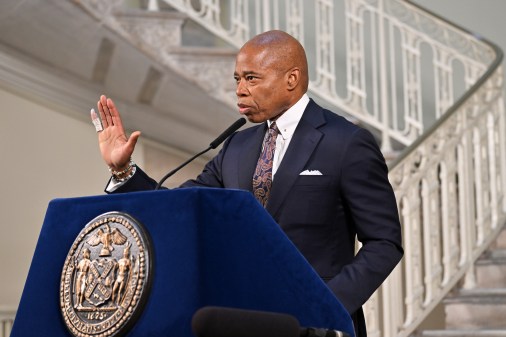NYC’s first Neighborhood Innovation Lab brings Internet of Things, apps and analytics to Brooklyn

New York City is bringing residents into the smart city planning process with the announcement that Brownsville, in Brooklyn, will be the first to have its own Neighborhood Innovation Lab.
The purpose of the lab is to gather residents, educators, tech companies, government officials and other stakeholders to solve local problems through data analysis, apps, sensors that monitor neighborhood resources and Internet of Things devices. Leadership for the lab is being provided by the Mayor’s Office of Technology and Innovation, the New York City Economic Development Corporation, NYU’s Center for Urban Science and Progress, the Brownsville Community Justice Center and the Osborn Plaza, which will serve as an anchor site for its programs.
“New York is a city of neighborhoods and there is no better way to prepare communities for the future than by empowering residents to define their needs and help our shape technology investments,” de Blasio said in a release. “Neighborhood Innovation Labs provide a unique opportunity to strengthen our collaboration with community, and also open new doors for local residents to learn about careers in technology, a fast-growing sector of our economy.”
The labs are inspired by Mayor de Blasio’s vision to building a more equitable city. The idea for the labs was first announced by NYC at the White House and was promoted by the Obama administration as part of their efforts to highlight innovative approaches and spur nationwide smart city efforts.
The initiative was directed by de Blasio to create more equitable neighborhoods and promoted by President Obama as part of his Smart Cities initiative in 2015. The city is funding the lab with $250,000 annually and — depending on Brownsville’s results — will consider creating a network of labs in all of New York’s five boroughs. A spokesperson from the city’s press office said funding will be used to support strategic planning efforts with community leaders, develop public programming and events in Brownsville, enhance the city’s anchor site at Osborn plaza and to help deploy smart city technology.
Starting this week, the lab will hold a series of strategy sessions for Brownsville’s community leaders to plan next steps. Leaders will help the city identify neighborhood needs over the next four months, and they are planning a community forum for residents in May. Come June, the city will also install smart city technologies like solar powered benches with cell phone charging and interactive LinkNYC kiosks for online access, and collect feedback on the projects.
“Rapid technological advances hold the potential to transform our cities, driving quality of life improvements for millions of New Yorkers,” said Miguel Gamiño, Chief Technology Officer for the City of New York. “Our challenge — and responsibility — is to ensure these technologies reach and benefit all New Yorkers, not merely a select few. Neighborhood Innovation Labs represent an important step toward fulfilling Mayor de Blasio’s vision for a stronger, more sustainable, resilient, and equitable future.”
For technology companies — especially for startups looking to prove themselves — the labs could represent a significant opportunity to test products in the real world. Often one of the most difficult issues for smart city tech companies just starting out is to show the value of their services to potential customers. Partnerships with neighborhood labs could be a path to creating and documenting use cases for civic tech apps and smart city tools.
“Humanity has developed technology that allows us to access millions of books in the palm of our hand, technology that builds houses in a matter of hours, and the ability to fly a plane with a remote control,” said Brownsville Partnership Director Mary Tobin, “yet with all of those advances, many of our under-served communities like Brownsville still continue to wrestle with public service challenges that can be vastly improved and even solved with the right technology.”






